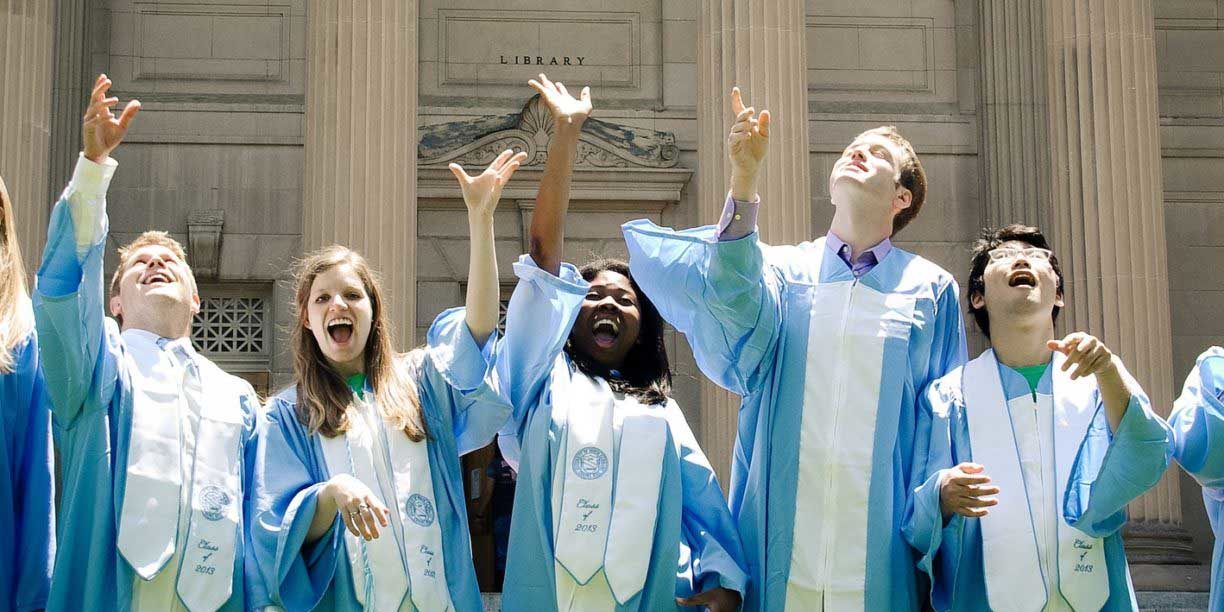How Universities Can Unlock Alumni Giving

There are many different types of charities, but most can apply similar fundraising strategies to their development work. University fundraising, however, faces some unique complications that make it difficult for development officers to reach potential alumni donors.
Even small colleges and universities have upwards of 5,000 students, and many public schools have over 30,000 students every year. The sheer size of a University makes it difficult for the development officers to forge close relationships with alumni. Add to that the variety of alumni backgrounds and the fact that many young graduates move to different cities, and universities face an immense challenge.
Large schools are also hampered because they’re perceived as bureaucratic mazes. Alumni have to contact one department for their transcripts, another for career services, and another for financial issues. Development officers are perceived as just another cog in the machine.
If universities want to succeed in converting alumni into donors, they must deal with the unique circumstances of these relationships. That involves nurturing lifetime relationships that will pay off later and connecting to the interests of different segments of your alumni.
Nurture Young Alumni
A successful alumni giving program unfolds over decades, not months. This can be a frustrating reality for development departments that want to see results, but only a fraction of your audience is prepared to give now. You must engage with young alumni, in the meantime, with the goal of forming strong, lasting bonds that will have graduates giving back as they become more able.
Your foremost goal with young alumni is to retain up-to-date contact information. Fortunately, people can now keep their email address even when their mailing address and phone number changes. Your next priority is to support their careers and show the value of having a relationship with their school.
It may seem like every graduation ceremony ushers in a class of new potential donors, but if your first alumni communications are asking recent graduates for money, it can be extremely off-putting. Entering the workforce in a still-recovering economy with student loan debt makes many brand new graduates a hard sell for donations. You’re better off providing opportunities and support to help launch their careers, which brings them closer to being in a position to donate.
Offer your young alumni networking and job opportunities. Development can partner with the Career Services department to put on events that will attract these new professionals to stay involved with the school.
You can still ask for smaller donations from time to time, but young alumni shouldn’t receive the same appeals you send to middle-aged professionals. You can increase the size and frequency of your appeals when the graduates have been out of school for a few years.
Offer More Ways to Help
A great way to cultivate relationships with graduates who aren’t ready to make a donation is to ask them to support the school in other ways. University events frequently require volunteers and this can keep a young alumnus connected with the school and its activities. Consider offering alumni free entrance to an event if they volunteer for a certain number of hours.
Peer-to-peer fundraising is another way for an alumnus to make a difference even if he can’t personally make a large gift. The graduate will have his own impact story to tell and will likely be in contact with some other alumni, making them an ideal fundraiser.
Because higher education, and particularly public universities, is affected by legislation and government policies, you can also reach out to alumni by asking them to vote on important issues or petition their representative. However you choose to engage alumni, it’s best to offer ways to get involved, both to strengthen your relationship and to appeal to those unable or unwilling to donate.
Appeal to Their Interests
While the size and number of people at universities can make them seem disjointed, they also allow for a proliferation of academic and extracurricular groups. Tapping into these more tight-knit communities is one way that development officers can make more personal appeals.
When people think back on their time in college, they don’t think about the thousands of people streaming over the campus, they think of the people they were close with. It may have been a bunch of Physics majors who studied together or a recreational soccer team, but many students will have a much stronger connection with a club or team than they do with the university as a whole.
Send alumni event invitations and communications specific to their interests. Consider segmenting alumni based on one or more of these associations
• Academic Department (chemistry, literature, political science)
• Athletics (varsity teams, recreational leagues, season ticket holders)
• Campus Religious Associations
• Volunteer Organizations
You can even organize fundraising competitions among different university groups. This not only invokes the personal connections alumni have but also allows them to relive their membership by contributing to the group effort.
Don’t forget to give alumni specific projects or programs to donate to and fundraise for. If possible, task these groups with supporting the needs of the clubs and organizations they enjoyed as students.
Alumni giving is a long-term challenge for colleges and universities. Development officers must appeal to many diverse donor segments with a variety of interests and concerns. It’s important to begin this process by supporting young graduates’ careers and continuing to provide value. By offering the appropriate engagement opportunities throughout the donor relationships, universities can position themselves for success for years to come.
Read Next: Triumphant University Fundraising Relies on These 3 Alumni Engagement StrategiesWin the Minds of Donors: Download the Fundraising Psychology Guide
Image Source: Evonne on Flickr
Subscribe to the Classy Blog
Get the latest fundraising tips, trends, and ideas in your inbox.
Thank you for subscribing
You signed up for emails from Classy
Request a demo
Learn how top nonprofits use Classy to power their fundraising.




